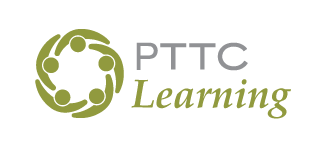Overview
In today’s dynamic landscape, embracing a systems change approach to substance misuse prevention can lead to healthier and more equitable communities. This 6-week series offers an interactive experience for participants to explore the role of systems change in substance misuse prevention. Participants will examine capacities shown to enable evidence-based interventions to achieve and sustain expected results and learn how to incorporate these into their work. Trainers will share examples from their own systems change experiences and will highlight how leveraging leadership, communications, funding, and data can help participants to achieve their prevention goals. The distance learning series will include skill-based learning opportunities, individual and group activities, reading assignments, and group discussion.
When:
States & American Samoa:
Dates: May 7, 14, 21, 28, June 4, and 11, 2024
Time:
3:00 PM – 4:30 PM Pacific
12:00 PM – 1:30 PM Hawaii
11:00 AM – 12:30 PM American Samoa
Pacific Jurisdictions:
Dates: May 8, 15, 22, 29, June 5, and 12, 2024
Time:
10:00 AM – 11:30 AM Republic of the Marshall Islands
9:00 AM – 10:30 AM Pohnpei and Kosrae
8:00 AM – 9:30 AM Guam, Northern Mariana Islands, Chuuk, and Yap
7:00 AM – 8:30 AM Republic of Palau
Facilitator:
Capetra Parker, MPH, Communities That Care Specialist, Evidence2Success Coach, UW Social Development Research Group. Capetra supports communities as a coach of Evidence2Success and coaches several CTC Plus communities in the Eastern U.S. Ms. Parker has co-authored journal articles about the implementation of CTC in urban communities through the Center for Healthy African American Men through Partnerships (CHAAMPS). She has a special interest in empowering communities to employ strategies that address race, equity, and inclusion disparities. Ms. Parker earned her MPH from the University of Minnesota School of Public Health.
Objectives:
By the end of the EPLS, participants will be able to:
- Describe the importance of systems change to success in the field of prevention
- Name four capacities necessary to create enabling contexts
- Identify personal strengths and areas to enhance leadership capacity
- Name at least two strategies to communicate the value of prevention to enhance system change efforts focused on prevention
- List three resources they can access to complete the fund mapping process in their community
- Describe why data systems are essential in prevention
Audience:
- Community-level prevention practitioners and allied partners working to prevent substance misuse in the Pacific Southwest (HHS Region 9) states and jurisdictions of American Samoa, Arizona, California, Commonwealth of Northern Mariana Islands, Federated States of Micronesia, Guam, Hawaii, Nevada, Republic of Marshall Islands, and Republic of Palau.
- Please note: This training is reserved for prevention professionals working in HHS Region 9.
- Prevention professionals interested in this course but who work outside of HHS Region 9 are encouraged to contact their region’s PTTC to learn about similar courses available to them.
Participant Commitment and Expectations:
- If your experience with Zoom is limited or you want to review key features of Zoom, please view the 20-minute Introduction to Zoom video prior to the first session on Tuesday, May 7, 2024 on how to use and maximize the platform.
- Participate in 6 sessions of training, for 1.5 hours on scheduled series days/times.
- Complete up to ONE hour of independent learning activities between each session.
- Use a web-camera and have access to appropriate technology to join the online videoconferencing platform (i.e., internet connection, built-in or USB webcam, desktop/laptop computer, built-in/USB/Bluetooth speakers & microphone).
- Actively engage and be on camera 90% of the time during each session, since this is not a webinar series and active participation is essential to gain/improve skills.
Please Note:
This EPLS is not a webinar series. Active participation in each session is essential to gain and improve skills. If you cannot attend these sessions, you will forfeit your attendance.
In addition, it is expected that participants will have access to the appropriate technology by Tuesday, May 7, 2024 in order to fully participate and be on camera at least 90% of the time.
If you have questions regarding technology requirements or registration details contact rehart@casat.org.
Certificates:
Up to 15 hours of participation can be earned in this series. Participants who complete all 6 sessions will receive a certificate of attendance for 15 hours. Participants who miss more than one session will not receive a certificate. Participants will need to confirm with their certification board to determine if these certification hours are accepted towards their specific certification requirements.
The Pacific Southwest PTTC is administered by CASAT at the University of Nevada, Reno.

